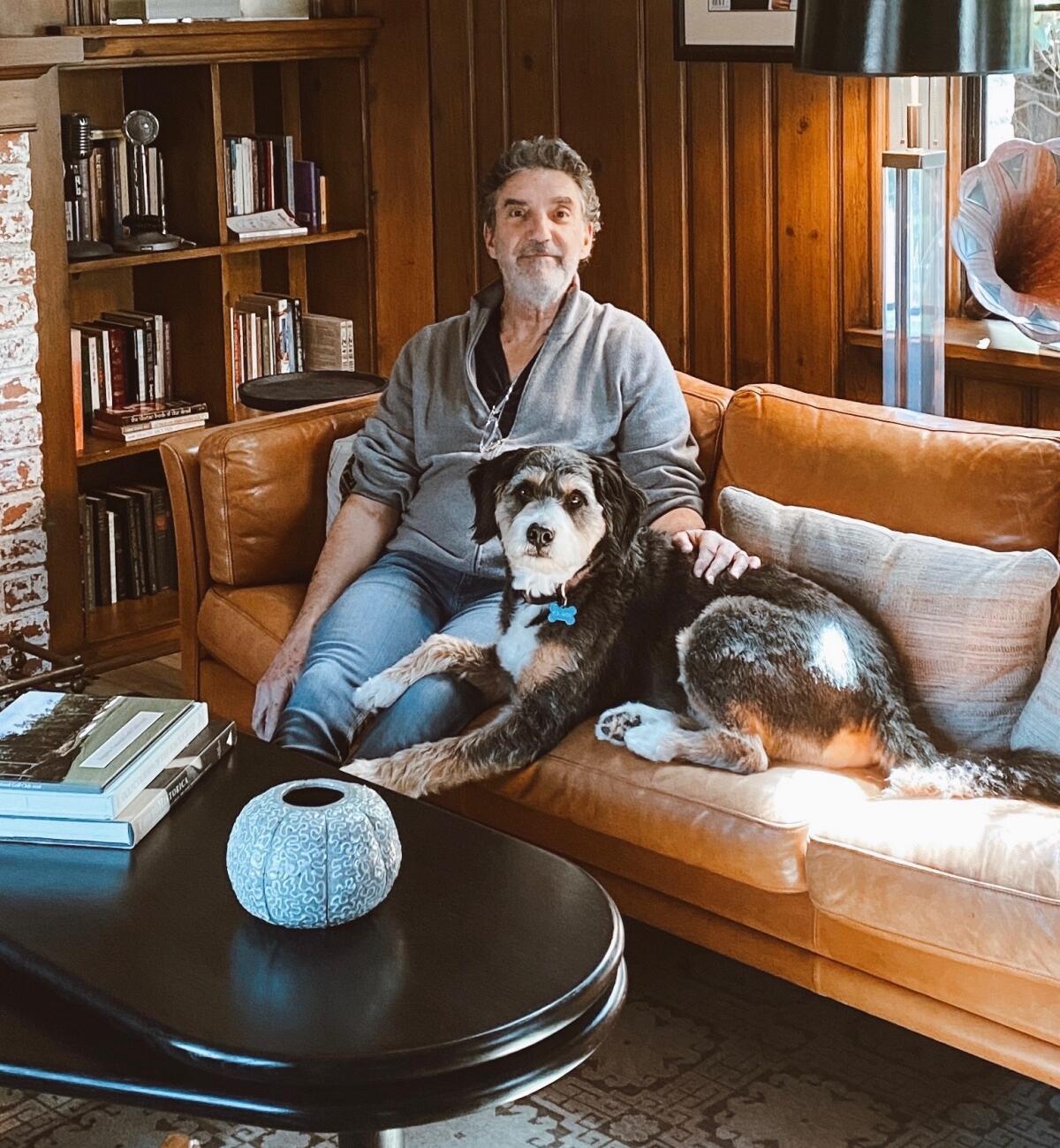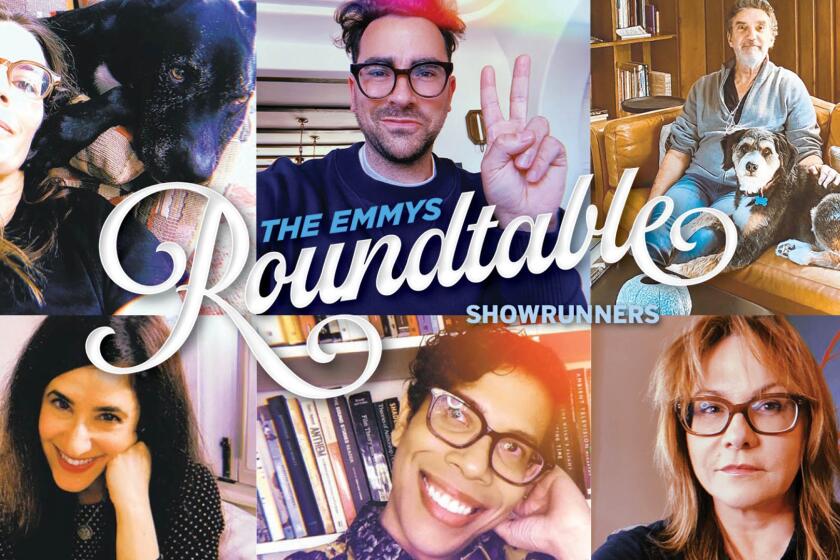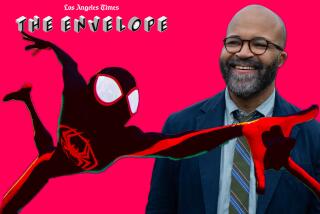Showrunner Chuck Lorre has hits by the handful, but knows he still has things to learn

- Share via
Chuck Lorre, the creative force behind such stalwart television series as “The Big Bang Theory,” “Two and a Half Men” and “Mom” among many others, is the first to admit he’s still learning new ways of thinking, this deep into his career.
The “Kominsky Method” showrunner joined The Envelope Emmy Roundtable to discuss the comedy series that stars Michael Douglas and Alan Arkin. Lorre was joined by Steven Canals of “Pose,” Kerry Ehrin of “The Morning Show,” Susannah Grant of the limited series “Unbelievable,” Dan Levy of “Schitt’s Creek” and Dahvi Waller of the limited series “Mrs. American.”
Series creators, including Chuck Lorre and Dan Levy, exchange ideas on what new TV productions might look like. Think cellophane for starters.
When the conversation turned to diversity and inclusivity, Lorre acknowledged that old habits and comfort zones die hard. But they can in fact be killed off.
“It’s inspiring,” he said of the industry’s efforts to open its doors to women and people of color. “You recognize your own blind spots, if you’re paying attention. You recognize your inclination is to surround yourself with more of you — people that reflect you and reflect your background. And that in and of itself is destructive and you don’t recognize it until you’re shown an alternative way of doing things,” he said.
“So it’s still a learning process. I’ve not stopped learning how to do this and not just the writing and the production and the editing and all the minutiae of making a television show. But the people you work with, that door [into industry positions] has to be much wider. And I didn’t recognize that [early on]. I was too busy climbing in myself and hoping not to get thrown out,” he added.
“At a certain point, you realize you have responsibility to create a more welcoming environment and make it possible for a broader spectrum of writing viewpoints, bringing different experiences into the process, so it’s not all Long Island Jews in the room.”
More to Read
The complete guide to home viewing
Get Screen Gab for everything about the TV shows and streaming movies everyone’s talking about.
You may occasionally receive promotional content from the Los Angeles Times.







